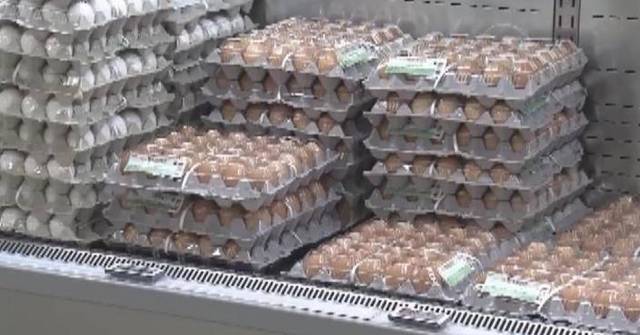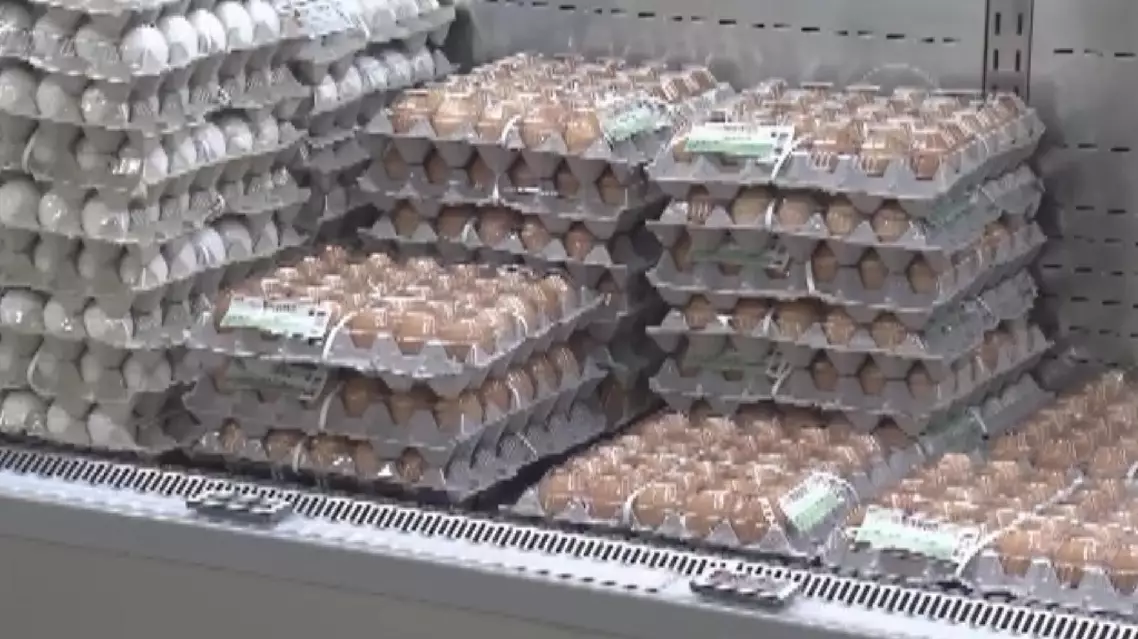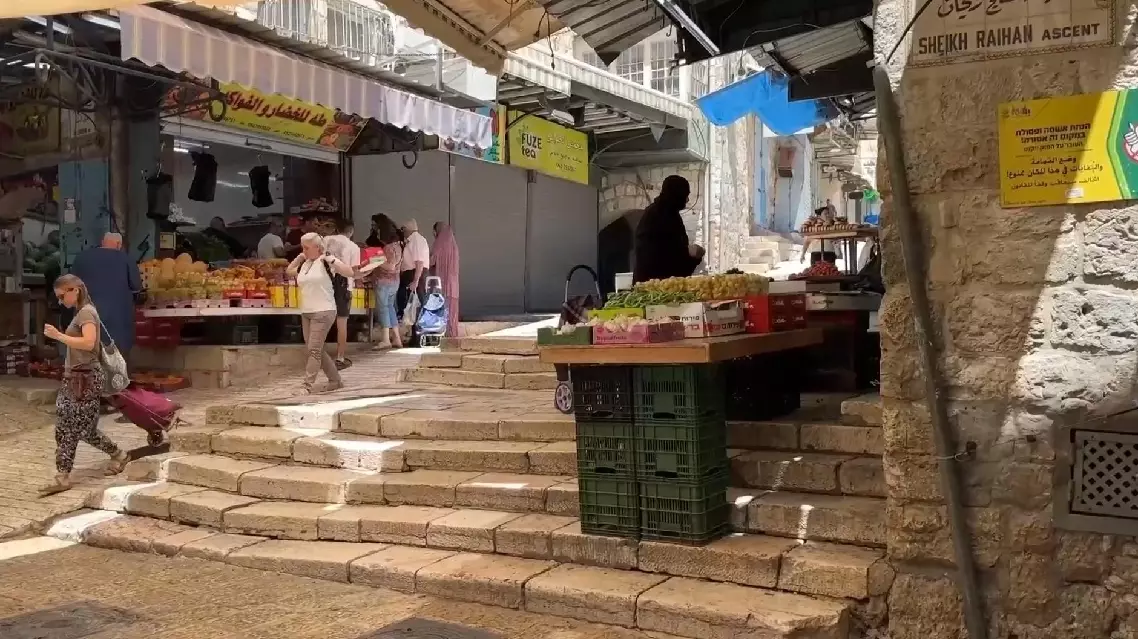Livestock and processed food prices in South Korea have soared, fueled by multiple factors including currency depreciation and rising raw material costs, further straining residents’ cost of living.
Recently, livestock product prices saw a sharp 6.2 percent year-on-year rise in May, the steepest climb in three years, continuing their upward momentum into June, according to Statistics Korea.
Meanwhile, other factors such as avian influenza have driven up egg prices, with the retail price of a pack of 30 eggs exceeding 7,000 won (about 5.11 U.S. dollars), marking a year-on-year increase of 7.8 percent and reaching the highest level in four years.
As egg prices continue to rise, some major supermarkets have begun offering limited-time promotions on eggs and beef, triggering a rush to buy food and other daily supplies.
“Today, 90 percent of the egg stock for the promotion has already sold out, showing great popularity. Imported beef was sold out by the morning,” said Kim Yong-ho, head of the marketing department at a Korean supermarket.
Due to factors such as the depreciation of the won and rising raw material costs, the prices of processed foods in the country have also been consistently increasing.
In May, the prices of processed foods rose by 4.1 percent compared to the previous year. Data from Statistics Korea tracking 74 major categories of processed foods shows that over 70 percent of these categories experienced price increases. Notably, instant noodles saw a year-on-year price rise of 6.2 percent.
“Prices have risen significantly, and I find myself hesitating for a long time whenever I go grocery shopping because I’m unsure about what to buy. For our family of three, we used to spend about one million won (about 730.59 U.S. dollars) on food each month, but now it’s around 1.3 million won (about 949.77 U.S. dollars),” said a local resident in Seoul.
South Korean President Lee Jae-myung said that relevant government departments should swiftly develop measures to stabilize prices.
South Korea grapples with surging prices for livestock, processed foods
Israelis have been stocking up on essential supplies at the weekend in fear of retaliatory attacks from Iran after Israel on Friday launched a large-scale strike on Iranian military and nuclear sites.
Israelis usually spend their Fridays out in the sun, but concerns of retaliation by Iran has forced many indoors. Some residents are stocking up on essential food supplies ahead of a possible protracted conflict.
At Rotshield Boulevard in downtown Tel-Aviv on Friday, most of the people stayed at home listening to the instructions of the Home Front Command of Israel Defense Forces (IDF) to remain close to the protected shelters.
Some other people chose to storm the stores from the very early hours of the morning to buy everything they can.
“Everybody is concerned. I was in the supermarket an hour ago and there is a long line, an hour long line to buy milk and eggs. It was incredible. There is a lack of a lot of basic products. It’s crazy because I just want a few products in my house to be sure that I can survive in the next few days,” said Itai, a local resident.
People are storing essentials, including water, milk and fruits, but not everybody feels panic.
“We just went to the supermarket and you can buy whatever you want. It’s still full. Everything is there and there is no problem, nothing is missing, nothing is lacking. Everything is good. I don’t think there is any hysteria whatsoever because they do tell you that they will give you a 10 minute notice and 10 minutes is plenty of time,” said a local woman.
Multiple senior military commanders, including Chief Commander of Iran’s Islamic Revolution Guards Corps Hossein Salami, Chief of Staff of the Iranian Armed Forces Mohammad Bagheri and Commander of Iran’s Khatam al-Anbiya Central Headquarters Gholam Ali Rashid, were killed as a result of the airstrikes, state media reported.
The Israeli airstrikes also killed at least two Iranian nuclear scientists, identified as Mohammad Mehdi Tehranchi and Fereydoun Abbasi, reports said.
Explosions were reported in Tehran and the counties of Natanz, Khondab and Khorramabad, the Iranian state TV reported, adding that multiple casualties, including women and children, were reported in a residential building in Tehran.
Iran’s Supreme Leader Ali Khamenei said on Friday that Israel will receive harsh punishment.
Israel “has prepared a bitter fate for itself, which it will definitely receive,” he said in a statement.
Israelis stock up on essential supplies over concerns about Iranian retaliation


